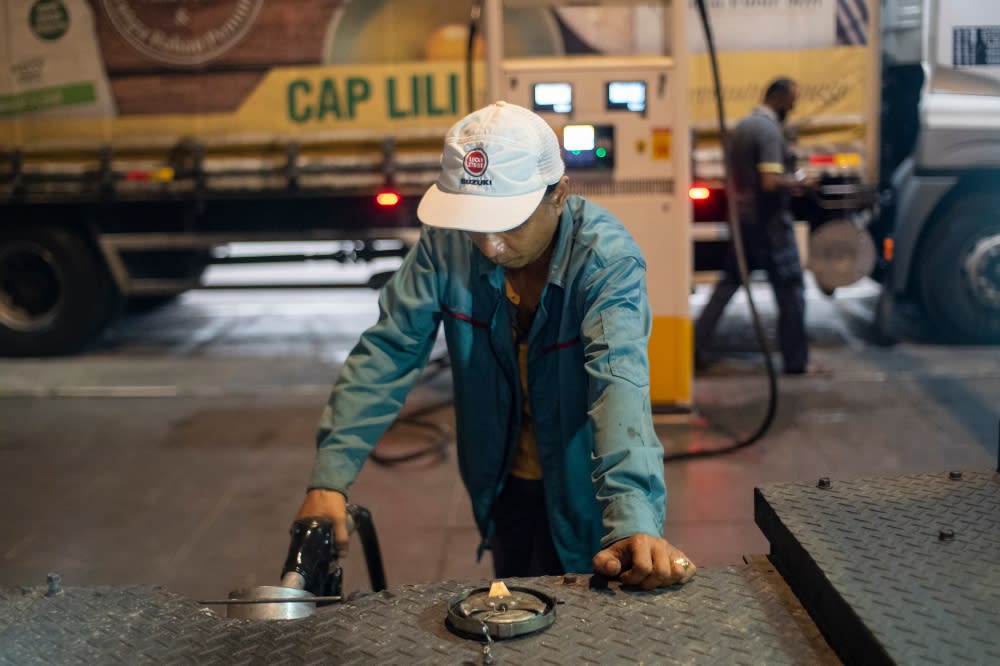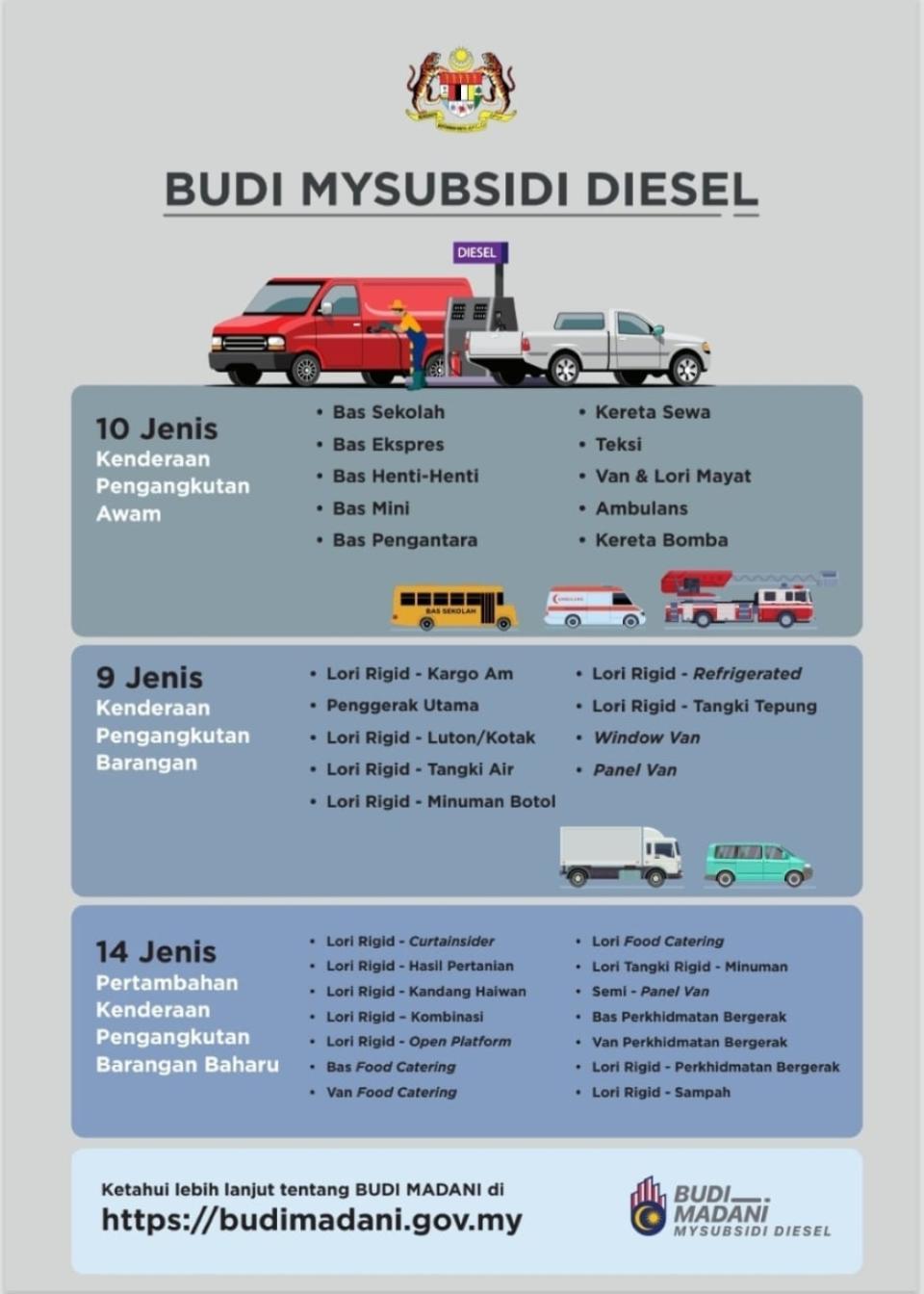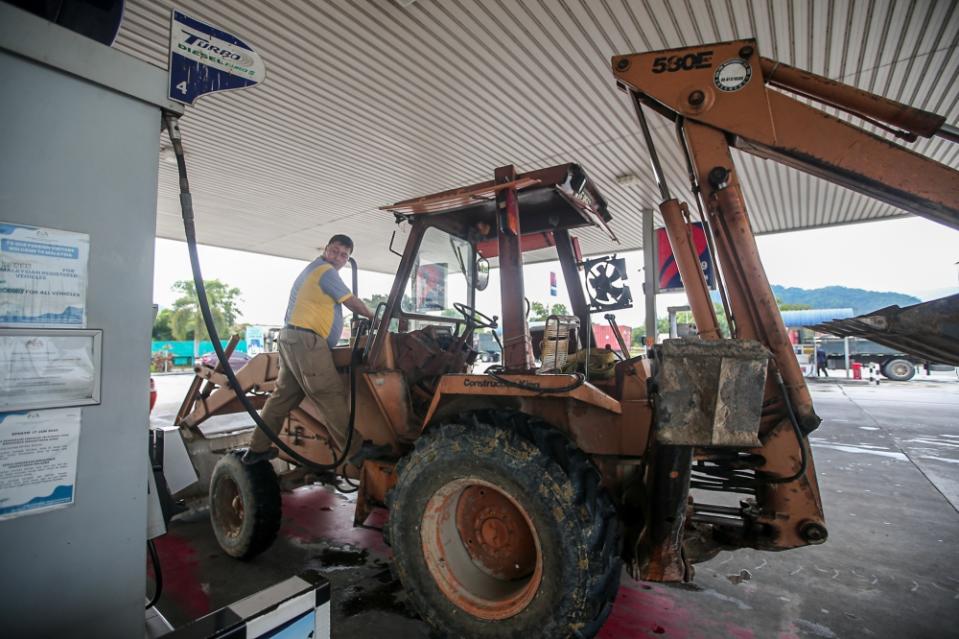Diesel price hike shouldn’t mean spike in prices of goods: Here’s why, according to economists

Economists polled by Malay Mail felt that an increase in diesel price should not affect prices of goods and services as most commercial transports are still using subsidised diesel
Pinch should be felt by individuals who drive personal diesel vehicles, and do not qualify for subsidies in the first place
Inflation and rising costs of living inevitable, but would likely not be driven by the diesel subsidy rationalisation
KUALA LUMPUR, June 11 — Several economists have sought to allay public fears, saying that the increase in the price of diesel this week to RM3.35 per litre should not have a noticeable impact on the prices of essential goods and living costs.
The economists polled by Malay Mail reminded the public that commercial diesel vehicles are mostly covered by the Subsidised Diesel Control System (SKDS), with Nungsari Ahmad Radhi highlighting that subsidies are still retained for almost all the major industries.
“Given that almost all public transportation, all logistics and all transportation companies still enjoy subsidised prices, how can that be true?” he told Malay Mail when asked if rising costs would result from setting a higher pump price for diesel.
Nungsari explained that the new diesel price would only affect private diesel car owners and also those smuggling diesel in a large scale.
He said the government has implemented SKDS 2.0, where qualified logistics vehicles can apply for fleet cards for subsidised diesel price at RM2.15 per litre — which is set to curb the impact on the price of consumer goods.
Similarly, he added that the SKDS 1.0 for land public transport vehicles including school buses, express buses, ambulances and Fire and Rescue Department remains at the price of RM1.88 per litre.

“Meanwhile, the price for the subsidised diesel for fishermen remains at RM1.65 per litre,” he added, referring to the statement released by the Ministry of Finance.
Meanwhile, the Malaysian Institute of Economic Research’s head of research Shankaran Nambiar said price hikes resulting from the diesel price can still be managed and contained.
This, he said because the subsidies retained for the logistics industry is based on card and holders are entitled to a certain limit.
“As such there will be some impact, though the impact will be measured,” he said.
“The cash handout is worth RM200. We are not sure if it will be sufficient and we can’t be sure it will not be misallocated. As a consequence there is bound to be some price rise, though it will be contained,” he added, referring to the Budi MySubsidi Diesel programme for qualified drivers of personal diesel vehicles.
He also added that the current policy over the diesel price will not alter Bank Negara Malaysia’s (BNM) projection of inflation.
“I think at worst, inflation will be in the range of 3 per cent to 3.5 per cent for the year,” he said.

A man refuels his excavator at a gas station in Khantan Perak on June 10, 2024. — Picture by Farhan Najib
Following the announcement by the government on Sunday evening, Malay Mail reported that consumers were anxious about the targeted subsidy rationalisation move that replaced the previous blanket subsidy.
Consumers interviewed expressed their apprehension for another round of potential price hikes for essential goods that could drive up their monthly household spending.
In response, economist Mohd Nazari Ismail said that price hikes would be inevitable in the future but stressed that the change in the diesel price could not be the sole factor.
“Yes, prices may go up in the future. However, many factors may be involved in the price increase. The increase in diesel prices is one reason,” he said.
“In the long term, the main cause is a financial system based on a banking system that creates a lot of new money when lending money to customers. So, I will not correlate any increase in prices directly to the withdrawal of the diesel subsidy.”
Will the new diesel price affect me?
This only applies to Peninsular Malaysia, for now
If you are a private owner of a diesel vehicle, you may be eligible for the Budi MySubsidi Diesel programme
If you are a company using diesel vehicles for public transportation, school buses, local buses, express buses, ambulances, firefighters, hearses and logistics, you can apply for the Subsidised Diesel Control System (SKDS) fleet card
To know more about this developing story, read Malay Mail’s wrap-up of the issue: All you need to know about: Malaysia’s new diesel price of RM3.35 per litre



